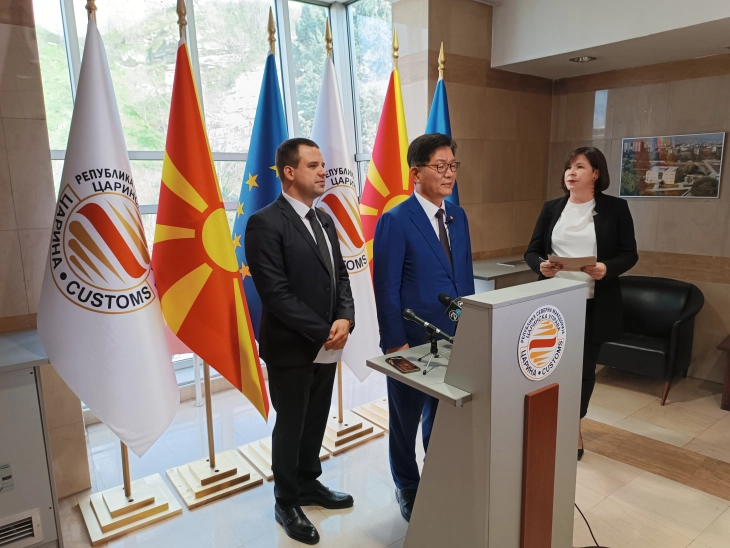The commencement of the project for the implementation of a risk management and data warehouse system, supported by a $4.8 million grant from the Republic of Korea, promises to bolster revenue collection in the Budget. This infusion of funds is expected to have a positive impact on crucial sectors such as hospitals, infrastructure projects, and schools, while concurrently addressing issues related to organized crime. Stefan Bogoev, the head of the Customs Administration, highlighted these anticipated benefits during the official launch ceremony alongside Kwanghyo Ko, the head of the Korea Customs Service.
Bogoev emphasized the collaborative efforts with experts from the Korea Customs Service, citing a comprehensive analysis of risks and the identification of specific needs within the Customs Administration. The implementation of the system is poised to enhance risk management, improve accuracy in identifying potential underreported duties, and mitigate the risks associated with incorrect customs classification or origin declaration of goods.
The decision to grant $4.8 million for this system followed a meticulous three-year analysis by the Macedonian Customs, ultimately positioning North Macedonia as a regional leader. Bogoev expressed gratitude to the Korea Customs Service for their commitment to the development of Macedonia’s Customs Administration, emphasizing the strengthening of diplomatic relations since their formal establishment in 2019.
Kwanghyo Ko highlighted the significance of the project, funded by Korea’s Official Development Assistance (ODA), as it marks the Korea Customs Service’s first foray into establishing an e-clearance system in the European region. The system’s implementation is expected to enhance work efficiency and logistics in North Macedonia through integrated information resource management and risk mitigation. Ko expressed optimism about the project contributing to Macedonia’s journey towards EU membership.
Acknowledging the broader implications of the project, Ko expressed a commitment to expanding cooperation, including the potential signing of a customs mutual assistance agreement. He pledged the Korea Customs Service’s best efforts not only for the successful implementation of the project but also for sustained collaboration and mutual development.





Comments are closed for this post.